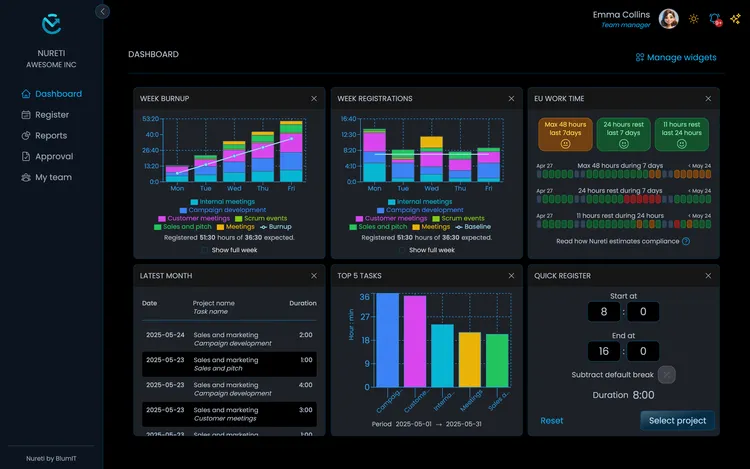Are Freelancers Covered by the Working Time Directive?
Published {$created} by Carsten Blum
If you work as a freelancer or contractor in the EU, you’ve probably wondered whether the Working Time Directive — the rule that limits working hours and ensures rest breaks — applies to you.
The short answer is:
No — freelancers are not directly covered by the Working Time Directive. But that doesn’t mean you should ignore it. The directive exists for a reason, and its principles can help you stay healthy, balanced, and productive in the long run.

1. What the Working Time Directive Actually Is
The EU Working Time Directive (2003/88/EC) sets basic limits for employees, including:
A maximum of 48 working hours per week, on average
At least 11 consecutive hours of rest every 24 hours
A minimum daily break after six hours of work
At least one day off per week
It’s designed to protect employees from overwork and burnout — ensuring a fair balance between work and rest.
2. Are Freelancers Covered by the Directive?
Under EU law, the directive applies to employees, not self-employed workers. Freelancers and independent contractors are generally considered to be running their own business — setting their own hours, choosing their clients, and taking responsibility for their workload.
This means:
You’re not legally bound by the 48-hour weekly limit
You don’t have a right to paid breaks or guaranteed rest periods
You’re responsible for managing your own time and wellbeing
In short: freedom comes with responsibility.
3. Why Freelancers Should Still Follow the Principles
Even if the law doesn’t require it, following the Working Time Directive as a guideline makes sense — both for your health and your business.
Here’s why:
Human limits still apply. Your brain and body need rest to stay focused and creative.
Overwork kills productivity. Studies show that output drops sharply after 40–45 hours per week.
Burnout hurts business. Losing weeks or months to exhaustion costs far more than taking regular breaks.
Better work-life balance means better clients. When you work sustainably, you deliver consistently high-quality work.
In other words: respecting the directive isn’t about following rules — it’s about protecting your most valuable resource: yourself.
4. How Time Tracking Helps You Stay Within Healthy Limits
If you’re self-employed, time tracking can help you apply the spirit of the directive to your own routine:
See how much you really work each week — not just billable time, but admin and meetings too
Spot unhealthy patterns early, like long streaks without days off
Plan recovery time into your schedule
Build realistic project estimates that don’t push you past safe limits
A simple overview of your weekly hours can reveal when you’re overdoing it — and help you adjust before burnout hits.
5. A Freelancer’s Working Time Mindset
Think of the Working Time Directive not as a restriction, but as a benchmark for sustainable success.You don’t need to follow every rule, but you can adopt its balance:
Aim for a 48-hour weekly cap
Take real breaks during the day
Protect at least one full day off per week
That rhythm keeps your focus sharp, your creativity high, and your business strong over time.
Conclusion: Freedom Comes With Responsibility
Freelancers aren’t covered by the Working Time Directive — but the principles behind it are still essential. Overwork might feel productive in the short term, but it always catches up. By tracking your time, respecting your limits, and scheduling recovery, you build a sustainable business and a healthier life.
At Nureti, we make time tracking simple — so you can work freely without losing balance.
Read our Quick Start Guide and see how easy it is to stay productive and protected.